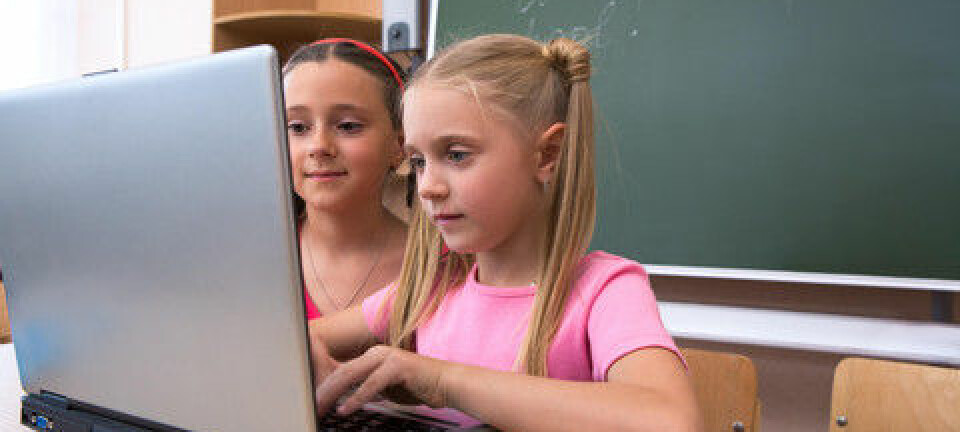
The trials of being a smart student
Smart pupils risk being perceived as annoying by both teachers and peers: Study.
Being viewed as the smartest in the class by teachers and classmates may not be an advantage.
The student risks becoming socially vulnerable and may experience fewer opportunities to learn, shows a new PhD thesis.
“Students who are labelled as “smart” by the teacher are at risk of being ostracized by their peers and of suffering reduced learning opportunities,” says Ulla Lundqvist, from the Department of Pedagogical Postgraduate Education at the Metropolitan University College, Denmark.
Read More: Schools to blame for unmotivated students
“Identity labels may have serious consequences for the student”
Lundqvist collected ethnographic data from two primary school classes in Copenhagen, Denmark. She followed the student’s progress between the ages of 11 and 13 and found that receiving the label of being “smart” can make the children’s school days difficult.
“When a “smart” student often delivers the expected answers to the teacher’s questions, the teacher may inadvertently come to rely habitually on this collaboration to move the teaching activities along. Such social processes are likely to foster unreasonable pressure on these students for classroom demeanour and to place them at odds among their peers,” says Lundqvist.
In the study, she paid particular attention to two such “smart” students.
One of the children helped the teacher to move the teaching activities forward by guessing the answers to their questions from the classroom conversation. He was compliant and friendly. The other child was eager to participate in the teaching and asked many questions in classes.
The study showed that both children suffered negative consequences.
Read More: Students’ reading improves with longer school days
Child One:
Academically, the teachers came to expect that he would contribute to the class by answering the questions correctly, because he was typically cooperative and supportive of the teacher’s agenda.
When Lundqvist analysed video footage of the teaching, she discovered that the teachers themselves gave the student the answers and that he most likely learnt less than he would have done if he had been offered support to find the answers himself.
Socially, the boy went from being one of the smart students in class to becoming the teacher’s favourite. Over time, his classmates became annoyed and the boy therefore became socially vulnerable.
Read More: Students who master two written dialects do better in school
Child Two:
Academically, the second child was eager to participate in class, which was ultimately met with irritation by the teachers. She was perceived as disruptive and the teachers ended up ignoring her attempts to contribute. She received fewer opportunities to talk. She probably learned less than she would have if she had had more opportunities to contribute in class.
Socially, the girl “ended up being considered as a disruptive element in class by both the teachers and students. It meant that she was assigned a negative role, even though she was just trying to participate in classes,” says Lundqvist.
Read More: Pupils don’t know what is expected of them
Teachers do not assign labels deliberately
According to Lundqvist it is important to emphasise that the teachers do not do this deliberately.
“It can be a difficult task to facilitate students’ learning and to simultaneously be aware of how students gain identities such as ‘smart,’ ‘quiet,’ or ‘disruptive,’ over time. Understandably, teachers adopt habitual procedures to maintain a flow in their teaching and achieve their pedagogical goals,” she says.
“These procedures may compel teachers to ignore, or even reprimand those students who do not support the flow of teaching activities,” says Lundqvist.
Schools should be more aware of what they understand by a ‘smart student’ so they can better identify the consequences this label may have in the learning environment.
“It’s important that teachers create wiggle room for their students by becoming aware of what they understand by being “smart”, and how students’ social identity formations may create unintended negative consequences,” says Lundqvist.
Read More: The power of popularity: impact of the cool kids on teaching
We must be wary of generalising
Associate Professor Henrik Skovlund from the Danish Institute for Teaching and Education, who was not involved in the study, thinks that it is difficult to suggest a general trend from the study results.
“I think that it is very well conducted and a trustworthy study. However I think that it is generalising to imply that because you are academically gifted, it can lead to a loss in social status,” says Skovlund.
“In the study, the girl lost social status because she filled the role of being smart in a way that irritated teachers and students. But some talented students are more withdrawn and aren’t noticed in an adverse way. Here, it sounds like students generally lose their social status just because they are academically talented,” says Skovlund.
Read More: Young people in Denmark are becoming more and more stressed
More studies are needed to study a variety of perceptions of talented students and the consequences of these perceptions, he says.
Lundqvist agrees.
”My study shows how different smart student roles may develop into other roles, such as the ‘teacher’s favourite’ or ‘disruptive student’ over time, and how these social processes may foster unintended negative consequences,” she says.
The study should not be interpreted as reporting a general trend outside of the schools studied, but it does reveal institutional notions about what it means to be smart.
“Such notions contribute to shape social relations between teachers and students and sometimes in a negative way, ” says Lundqvist.
------------------------
Read more in the Danish version of this story on Videnskab.dk
Translated by: Catherine Jex









